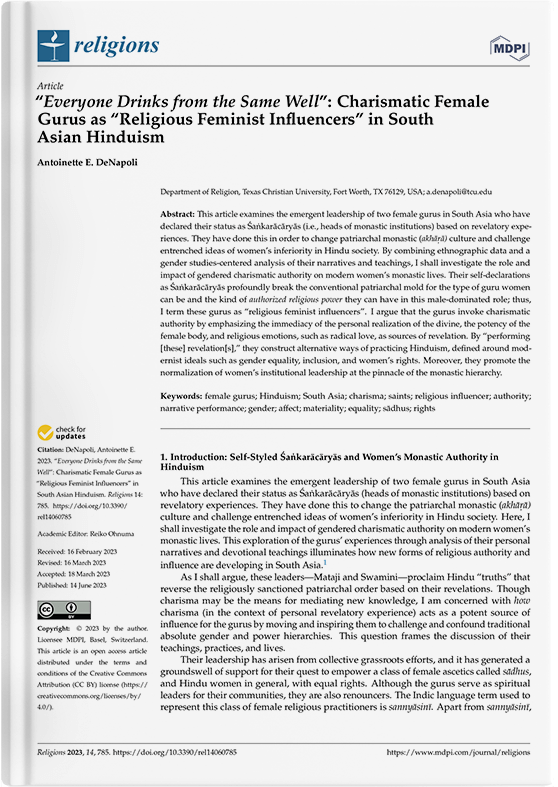
This article examines the emergent leadership of two female gurus in South Asia who have declared their status as S´an˙ kara¯ca¯rya¯s (i.e., heads of monastic institutions) based on revelatory experiences. They have done this in order to change patriarchal monastic (akh¯ar. ¯a) culture and challenge entrenched ideas of women’s inferiority in Hindu society. Their self-declarations as S´an˙ kara¯ca¯rya¯s profoundly break the conventional patriarchal mold for the type of guru women can be and the kind of authorized religious power they can have in this male-dominated role; thus, in term these gurus as “religious feminist influencers”. By “performing [these] revelation[s],” they construct alternative ways of practicing Hinduism, defined around modernist ideals such as gender equality, inclusion, and women’s rights.
| Asset Type: | Publications |
| Collection: | Other Philippine Publications |
| Subject: | Female gurus, Hinduism, South Asia, Charisma, Saints, Religious influencer, Authority, Narrative performance, Gender, Affect, Materiality, Equality, Sadhus, Rights |
| Author: | Antoinette E. DeNapoli |
| Publisher: | MDPI |
| Publication Date: | 2023 |

